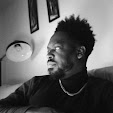“Our generation is not a setback, it’s a wake-up call!”
Those were the words of one of Martin Luther King High School’s Class of 2020 graduating seniors.
With permission from our principal, Keisha Wilkins and moderated by my colleague, Angie Crawford, today we held a school-wide town hall. It was primarily for students, but the vast majority of the staff also joined the call. Although only a handful of students logged on at 10am to join the discussion, the entire event was still a whole Black mood!
The goal was to provide a space for students, and perhaps faculty, to express their thoughts and opinions about the murders of George Floyd, Breonna Taylor, Ahmaud Arbery and countless other Black people at the hands, and knee, of police and the reaction of society to State violence against Black bodies.
Together they expressed their collective outrage at the stealing of the lives of these fellow Black Americans from us! Although they completely understood why some chose to destroy property and make off with items from food to toiletries, they didn’t approve. They did, however, celebrate the other nonviolent demonstrations and marches that brought attention, again, to the issue. As one student put it, although she wasn't out there marching, she still had something to say about it, regardless. Her action is to divest from primarily White-owned businesses to support Black-owned businesses.

The conversation, however, didn’t end there. The discussion organically shifted to the pedagogical and inter-relational violence that occurs in schools every day and as experienced by the students participating in the town hall this morning. Well aware that MLK's faculty and staff were on the call, these young people did not hesitate to center their race in the discussion and to relay their experiences with the school and their teachers.
One of the biggest themes from the discussion was on the student-teacher relationship. Citing potential barriers between teachers and Black students, one student felt that while we’re (teachers) often concerned about schoolwork “Nobody takes the time out to find out what’s wrong [with us]”; that between home and school, they seem to be “nonstop knocked down.” That while we’re concerned about grades, they’re asking themselves, “How am I going to eat tonight? Where am I going to sleep tonight?” These are direct quotes.
In some cases, our students are de facto caregivers for younger siblings. “I’m the one putting food in the house! That’s the parents’ job, but they too busy getting high.” This same student noted that he’s often the one trying to maintain his siblings and fight [child] protective services.
The mental trauma that results from all of these experiences is real. “If they don’t care about me, why should I care about me?” Another student co-signed. “I can’t get no peace. Everybody gives up on me so I give up on myself.” It was at this point that our STEP Clinical Coordinator stepped into the conversation to offer her continued mental health assistance, expertise, and support.
The students also offered solutions for us to consider. Sick and tired of trite teaching methods, they told us that we “can’t just give packets and think that I’m gonna do it.” They noted the differences in their learning styles and the necessity for us to adjust our instruction accordingly. They were also quick to note that school is not only about teaching and learning, but about love and compassion. It’s about “letting them (students) know ‘you’re gonna make it, you’re loved, you’re gonna be okay’” One also urged us to “be a parent in a sense to these kids.” She qualified her opinion. “Be a parent to them, then a teacher and a mentor.” “It’s so important to feel like [we’re] worth something," said another.
Stop.
Think about that for a moment.
As moving and imperative as this town hall was up until that point, it got even more moving. One shy student spoke very briefly in the beginning and then again at the end. In short, she was not okay; and that was okay. But when the seniors spoke directly to this freshmen student, sharing words of encouragement and of faith (quite literally as they referenced prayer and God) and typing into the chat their Instagram names (we used to exchange phone numbers) for her to use to reach out to them, that was a poignant illustration of compassion, empathy, and love for all of us to witness and to emulate!
Despite the challenges and exhaustion that often comes with being a Black student in public schools, these young people also took the time to express their love and to appreciate two teachers, in particular, who showed “tough love and pushed me” and who were really “like a mom.” “Y’all really are my superheroes!”
The lesson here is simple. Listen to Black youth! Their words and experiences are not case studies in a book to simply discuss. Their experiences have real implications on how we should approach school. Shrugging off their life’s journey is not an option. To reiterate one young lady’s words, “It’s so important to feel like [we’re] worth something!” Black Lives Matter at school. To some, they always have mattered at school and always will. The problem is that some is not enough. All lives matter when Black lives matter...in society and at school!




Love the article. Angie Crawford is an inspiration. She inspires me to be a better educator every time we speak.
ReplyDelete